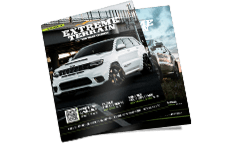Overview of the Fuel System
The fuel system of a 1999-2004 Jeep Grand Cherokee WJ is a complex assembly of precision-engineered components designed to achieve efficient combustion, maximize fuel economy, and reduce emissions. Key components of this system include the fuel tank, fuel pump, fuel filter, fuel lines, fuel injectors, and the throttle body. All these components are integral to maintaining optimal driving performance and ensuring your vehicle complies with stringent emission standards.Main Components
Fuel Tank and Pump
Fuel tanks, typically made of high-density polyethylene (HDPE) for its corrosion resistance, are designed to safely store fuel. Fuel pumps, most often electric for these models, draw fuel from the tank and provide the required pressure for fuel injection systems.Fuel Filter
The fuel filter, generally constructed of pleated paper or synthetic materials, removes impurities from fuel to protect the injectors from clogging or damage.Fuel Lines and Injectors
Fuel lines usually consist of heat-resistant rubber or steel, carrying fuel between components under varying pressure and temperature conditions. Fuel injectors, micro-machined to atomize fuel under high pressure for optimal combustion, are commonly made from hardened steel for their durability.Throttle Body
The throttle body, often cast from lightweight aluminum, modulates air intake into the engine to control engine speed.Manufacturing and Quality Standards
Manufacturing processes for these parts involve a mix of injection molding for plastic components, die-casting for metal parts, micro-machining for high-precision elements like injectors, and advanced assembly techniques to ensure reliable, leak-proof connections. Quality standards for these parts are demanding, often governed by stringent OEM specifications and regulatory mandates to ensure compatibility and longevity. Material properties, dimensional tolerances, pressure ratings, flow characteristics, and fatigue life are among the critical performance metrics that are rigorously tested and validated during development and production.Considerations for Replacement
Parts compatibility must be carefully checked against your vehicle's specific sub-model, engine type, and potentially also certain optional equipment before purchasing new components. Vehicle age, mileage, operating conditions, and maintenance history deeply impact the lifespan and performance of these parts. For example, a vehicle frequently operated in harsh or dusty environments might need more frequent fuel filter changes, while vehicles with high mileage or aggressive driving patterns could demand more frequent injector cleaning or replacement to maintain optimal fuel atomization.Performance Modifications and Upgrades
When dealing with fuel system modifications for the 1999-2004 Jeep Grand Cherokee WJ, it's common for enthusiasts to concurrently consider upgrades or changes to the intake and exhaust systems. These modifications can often provide synergistic performance improvements. Air intakes can increase engine efficiency with cooler, denser air, while performance exhaust systems can reduce back pressure and allow for better gas outflow, thus optimizing the engine's power output in conjunction with a well-maintained fuel system. Ultimately, maintaining and enhancing the fuel system requires a deep understanding of these intricate components, their mutual interactions, and the influences of external factors like vehicle characteristics or operating conditions. Armed with this knowledge, you can make well-informed decisions toward achieving optimal vehicle performance, efficiency, and safety.Fitment Includes:
- 1999, 2000, 2001, 2002, 2003 and 2004 Jeep Grand Cherokee
- Laredo, Limited, Overland, Sport, Special Edition
*Please see product pages for any exceptions.


